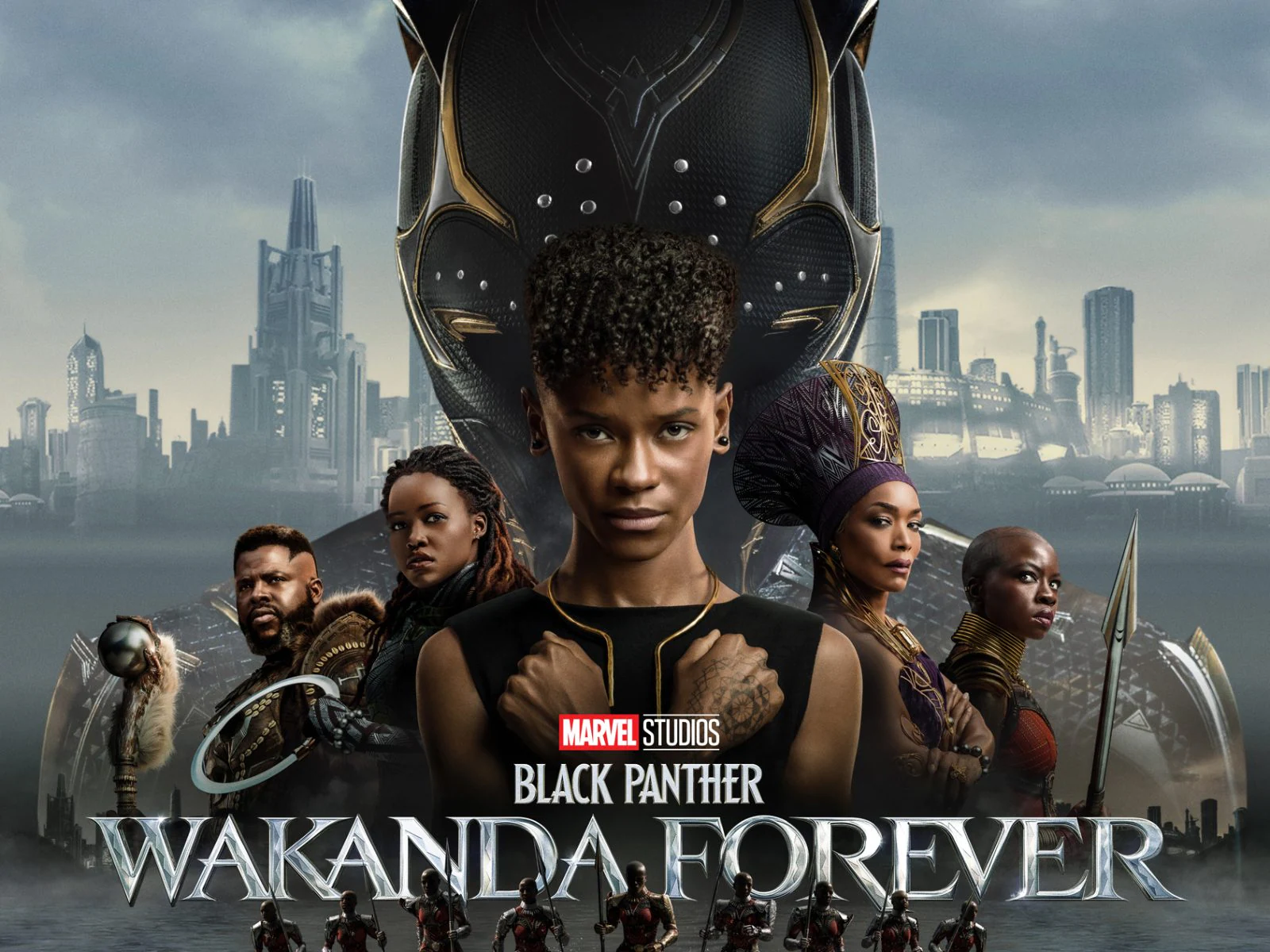
By Phoebe Piserchio, Entertainment Editor
*Spoilers ahead*
Marvel Studios’ Black Panther: Wakanda Forever, directed by Ryan Coogler and released on November 11, 2022, marks the end of the Marvel Cinematic Universe’s (MCU) Phase Four. The prequel, Black Panther, debuted in theaters back in February 2018, and much has changed since then. In August 2020, Black Panther star Chadwick Boseman tragically passed away from cancer. His death came as a shock to everyone, as his sublime performance as King T’Challa just two years before seemingly paved his way into becoming one of the greatest actors of his generation.
Shadowed by Boseman’s passing and being the last film of Phase Four, Wakanda Forever had Coogler facing the daunting task of creating a film that would not only answer the burning questions about the direction of the franchise and how it would honor Boseman’s legacy, but also live up to the ground-breaking solo superhero movie that was the first film. Having seen Wakanda Forever multiple times, I can say with confidence that the film does an incredible job of paying homage to Boseman’s character T’Challa and exploring how we process grief. Paralleling the actor’s death in real life, T’Challa’s death comes as a sudden and devastating surprise to even his closest friends and family. The film also reminds us that life throws curveballs at us when we least expect it, and sometimes no amount of magic or science can stop them.
The movie picks up from the aftermath of King T’Challa’s passing and how the nation of Wakanda has been functioning without its protector, the Black Panther. However, it specifically focuses on his sister Shuri (Letitia Wright) and mother Queen Ramonda (Angela Bassett). Still in mourning, the two are soon met with yet another challenge: a threat against Wakanda by Namor (Tenoch Huerta), the ruler of an undersea kingdom called Talokan. It’s obvious from Wright’s performance as Shuri that she is a powerhouse. Despite her role as the witty and intelligent side character in the first film, she emerges in Wakanda Forever as the main protagonist. Her character now focuses on coming to terms with her brother’s passing and, later in the film, her mother’s. The overwhelming and unimaginable grief of her entire family being gone is what motivates her into becoming the new Black Panther; this transformation is a huge turning point in the film. Her raging desire for revenge against Namor (who killed her mother, Queen Ramonda) leads to the final fight scene, a signature element in every Marvel movie. Eventually, Shuri forgoes killing Namor in exchange for his agreeing to cease war-making. Many fans were relieved that Marvel did not throw away yet another great villain by killing him within his first film appearance. It’s clear that Huerta is perfect as Namor and it’s exciting to see when his character will appear next.
Nearly three hours long, the film is also packed with other stories of new and old characters, and achieves an almost perfect balance of humor with emotion and action (which Marvel has been lacking in previous Phase Four projects). For one, Riri Williams (Dominique Thorne) is introduced. She is a young, genius college student who joins Shuri and Wakanda in fighting Talokan. Most fans are anticipating seeing where her character goes next, and we will find out in Marvel’s future show Iron Heart. Okoye (Danai Gurira), Nakia (Lupita Nyong’o), M’Baku (Winston Duke), and Everett Ross (Martin Freeman) are other fan favorites who get a lot of screen time and whose characters are further developed– hinting some will play more important roles in the future of the MCU. That said, there was one specific character who returned to the pleasant surprise of many: Erik Killmonger (Michael B. Jordan). Despite being in only one scene for a few minutes, Killmonger’s cameo is pivotal, revealing to Shuri, and the audience, that like him, she is driven by revenge. She then tackles the choice between killing Namor or being noble, like her brother.
Black Panther: Wakanda Forever ends with a silent, sentimental montage of Shuri and T’Challa as she gains closure for his passing. The heart-wrenching scenes of Shuri and other characters mourning the death of T’Challa have a delicate, sincere touch that shows Coogler’s ability to blur the line between real life and the fictional MCU. Throughout the film, Coogler offers a cathartic and powerful endpoint to the journey that was Boseman’s performance as King T’Challa and the Black Panther, referencing the character’s iconic line: “In my culture, death is not the end.”


